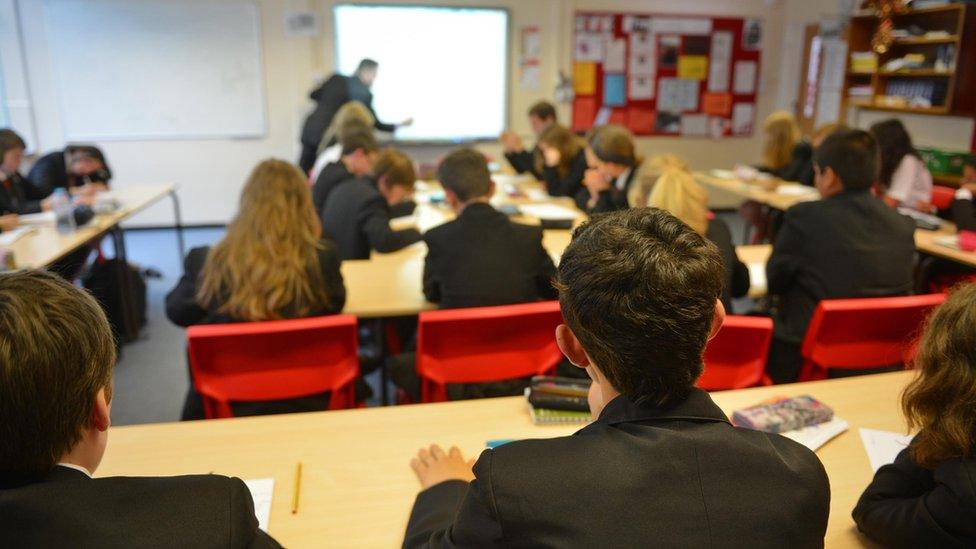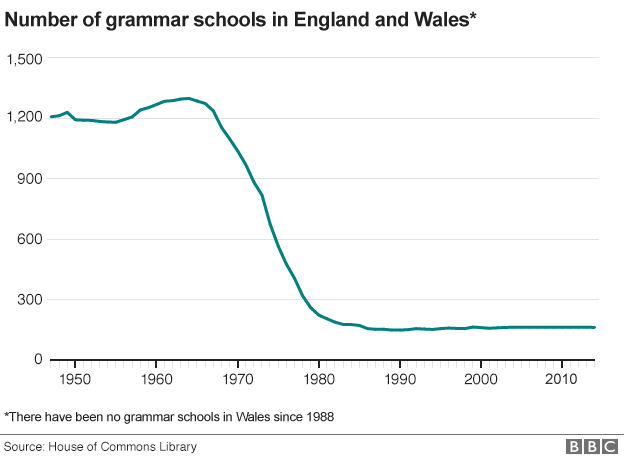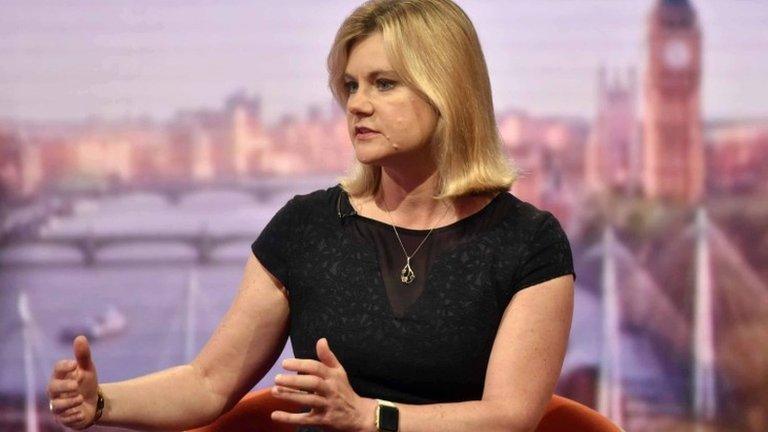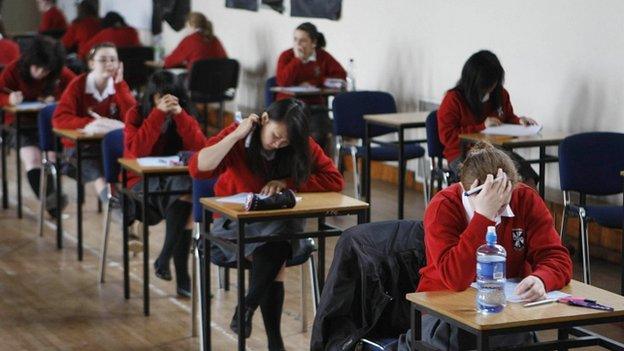Labour and Lib Dems 'would fight grammar school plans'
- Published

Labour and Liberal Democrats MPs have vowed to fight any move to allow new grammar schools in England.
Conservative Neil Carmichael, chairman of the Commons Education Committee, also said he would oppose the move.
It comes after the the Sunday Telegraph said, external PM Theresa May was planning to scrap the ban on new grammar schools in a bid to boost "social mobility".
Education Secretary Justine Greening has previously said she is "open minded" on the issue.
Grammar schools are state secondaries whose pupils are selected by examination at age 10 to 11.
There are currently about 163 in England - out of some 3,000 state secondaries - and a further 69 in Northern Ireland.
But under a law created by the Labour government in 1998, no new grammar schools are allowed to open in England. Education policy is devolved in Scotland, Wales and Northern Ireland.
Why not bring back grammar schools?
'Entrench disadvantage'
The Sunday Telegraph quoted an unnamed government source as saying that allowing new grammars would be about "social mobility and making sure that people have the opportunity to capitalise on all of their talents".
Mrs May, who herself attended a grammar school which became a comprehensive school while she was there, is thought to be a supporter of new selective schools.
She has previously backed a grammar school's proposal to open a new "annexe" in her Maidenhead constituency, while her chief of staff Nick Timothy has been quoted as supporting new selective schools, external in the past.

Responding to the Sunday Telegraph report, Labour's deputy leader Tom Watson said the party would oppose such a move, while shadow education secretary Angela Rayner said selective schools belonged "in the dustbin of history".
Labour leadership contender Owen Smith said grammar schools "entrench disadvantage - they don't overturn it", and promised he would "fight tooth and nail" against any plans to lift the ban.
Lib Dem leader Tim Farron tweeted, external: "Lib Dems will work to block any Tory attempt to create grammar schools."
Education select committee chairman Mr Carmichael told BBC Radio 4's Westminster Hour he was opposed to new grammar schools.
"We have serious issues about social mobility, in particular white working-class young people, and I don't think that having more grammar schools is going to help them," he said.
"I think that the creaming off of the best is actually detrimental to the interests of the most."

Analysis
By BBC political correspondent Chris Mason

Grammar schools make up around 5% of secondary schools in England; and a third of secondary schools in Northern Ireland. There are no grammar schools in Scotland and Wales.
For at least a generation, standing up for them has been a political minority sport. In this context, while the new prime minister and Education Secretary Justine Greening are coy in their language, their public willingness to be "open minded" is itself revealing.
Should the government decide to advocate an expansion of grammar schools - in whatever form - the opposition to that would be fierce.
Shadow education secretary Angela Rayner said "selection belongs in the dustbin of history and has no place in modern society". The Liberal Democrats are also strongly opposed.
But those in favour argue they can offer children from ordinary backgrounds an education often only available to those who can afford to pay for it.

Ms Greening has said she is "prepared to be open-minded" about school selection, but signalled that this might not mean a return to the old pattern of grammars and secondary moderns.
She stressed that education was no longer a "binary" world and that there were already a range of different types of school on offer.
Asked for comment, a Downing Street spokesman said: "Policies on education will be set out in due course."
He also said: "The prime minister has been clear that we need to build a country that works for everyone, not just the privileged few.
"Every child should be allowed to rise as far as their talents will take them and birth should never be a barrier."
The general secretary of the Association of Teachers and Lecturers, Mary Bousted, said: "A government that is serious about social mobility would not allow the expansion of selective schools.
"All children deserve to have a first-class education, not just those whose parents can afford the private tuition to help them pass the 11-plus."
- Published8 August 2016
- Published15 October 2015
- Published17 July 2016

- Published8 September 2016

- Published15 October 2015
- Published15 October 2015

- Published26 July 2016